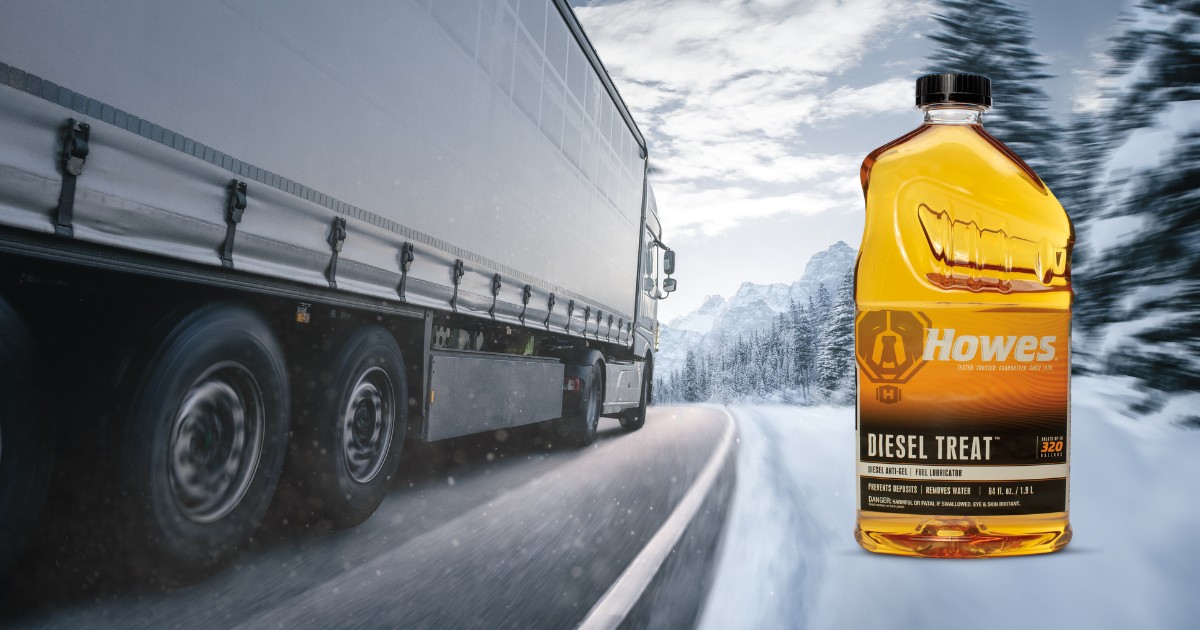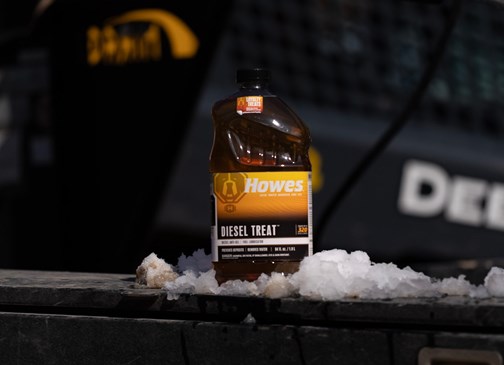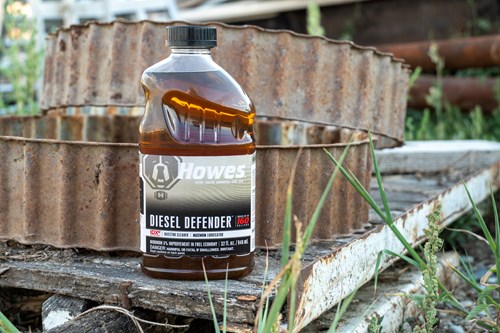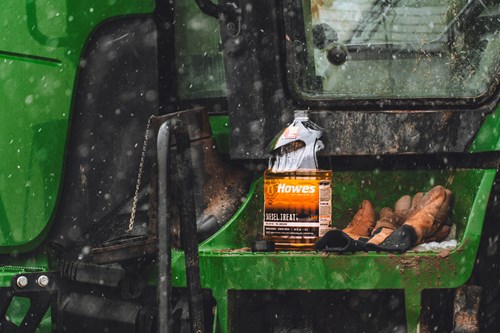
10/27/25
By Rich Guida
When most drivers think about diesel fuel gelling, they imagine bitterly cold mornings in the dead of winter. The truth is that cold flow problems start well before the thermometer dips into single digits. Wax crystals in diesel fuel begin forming at temperatures that may not even feel that cold. If you wait until the first hard freeze to use an anti-gel additive, you are already behind.
Diesel fuel naturally contains wax. As temperatures drop, this wax starts to crystallize. At first, it shows up as a haze or cloudiness in the fuel, known as the cloud point. As more crystals form, they clump together and block filters. Eventually, untreated diesel can turn into a waxy mass that simply will not flow.
There are three points worth knowing:
The important thing to understand is that problems begin well before diesel fuel is a solid block. Even small amounts of wax buildup can starve your engine of fuel, lower power, and lead to unexpected downtime.

The most common question drivers ask is: “When should I start using an anti-gel?” The answer is simple. You should begin before freezing temperatures set in.
Once overnight lows are reaching the 40s, it is time to switch to a winter additive like Diesel Treat. Cold nights, early frosts, or sudden swings in temperature are all enough to trigger wax formation in untreated diesel fuel. By treating early, you protect yourself against these surprise events.
Treating early is not just about preventing gelling. Diesel Treat also provides several other important benefits for your diesel engine. It boosts lubricity, safely removes water, and cleans injectors. Even if the weather turns out warmer than expected, you are still giving your engine what it needs to run better and last longer. And, because Howes Products are petroleum-based and free from harmful alcohols and solvents, there’s no downside.
You do not need a blizzard for diesel fuel to give you trouble. Cold flow issues often start to appear when temperatures dip below 40°F.
Here are a few common scenarios:
This is why drivers in northern states often experience cold flow problems earlier in the season than they expect.
A smart approach to fuel treatment covers the entire year.

Diesel additives are beneficial outside of winter. Diesel Defender is a summer diesel additive that cleans injectors, boosts lubricity, and removes water, preparing your fuel system for the heavier loads of winter. Diesel Defender is especially useful during warmer months when gelling is not a concern but protection, efficiency, and longevity matter.
As soon as nightly temperatures dip into the 40s, switch to Diesel Treat. It prevents gelling, removes water, and protects your engine with extra lubricity. By treating early, you ensure that Diesel Treat works its way through your entire fuel system so that you’re fully protected.
Even with preparation, extreme weather can catch anyone off guard. That is why it pays to carry Diesel Lifeline. If your fuel does gel and you cannot get started, Diesel Lifeline can be poured directly into the filter and tank to restore flow quickly. It is an inexpensive insurance policy that can save you hours of downtime on the side of the road or at a jobsite.
Do not wait for your engine to completely shut down. Watch for these early signs that your diesel fuel is beginning to gel:
Catching these signals early allows you to increase your additive dosage and avoid a complete failure.

Diesel gelling is not just a problem for the heart of winter. It begins silently and earlier than most drivers expect. If you wait until your truck or semi is already struggling, you are risking downtime, repair costs, and missed schedules.
The best strategy is to treat early and consistently. Use Diesel Defender through the warmer months, switch to Diesel Treat once the nights turn cold, and keep Diesel Lifeline on hand as backup. That way your engine is always protected, and you never have to wonder if the next cold snap will leave you stranded.